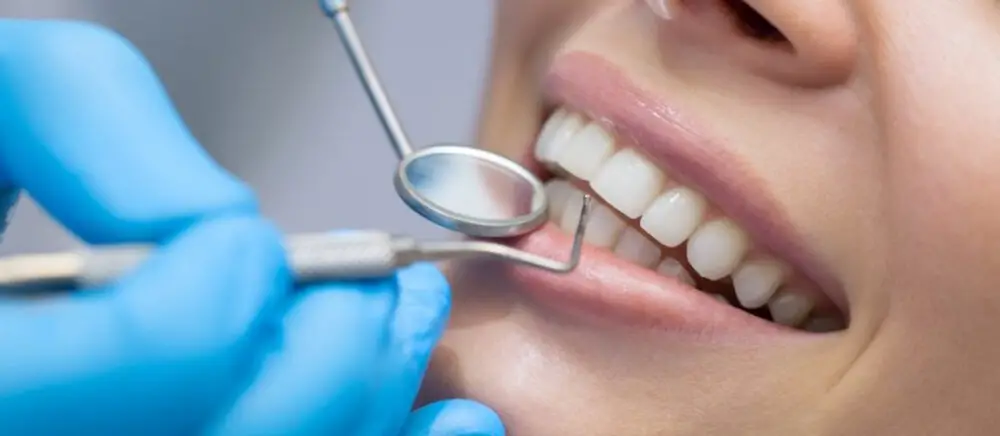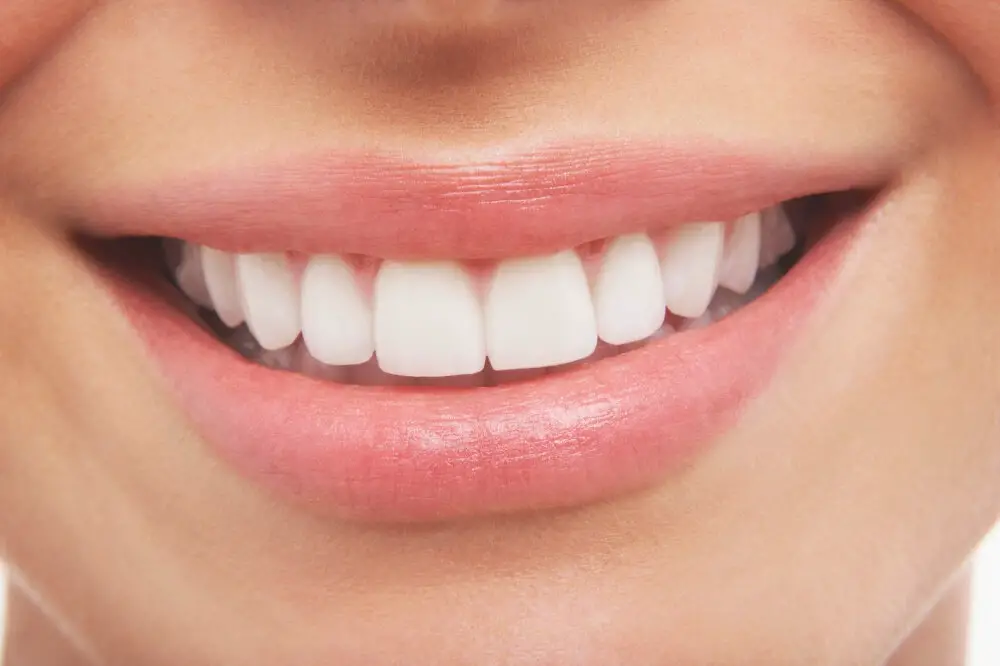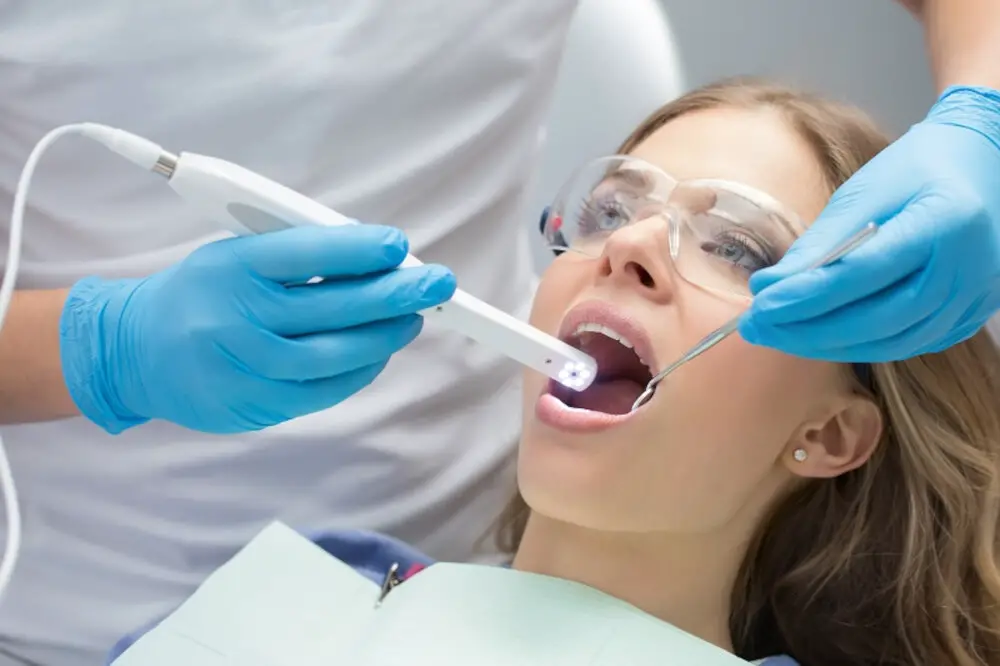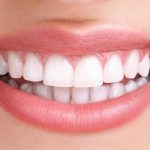Unbreakable Smiles: Exploring the Strength and Resilience of Teeth

Our teeth are one of the most essential parts of our body, responsible for breaking down food, aiding in speech, and enhancing our appearance. Despite their importance, teeth are often taken for granted and not given the care and attention they deserve. However, teeth are incredibly strong and resilient, capable of withstanding immense pressure and wear and tear. In this article, we will explore the strength and resilience of teeth, and how they are able to withstand the daily stresses we put them through. Teeth are made up of several layers, including the enamel, dentin, and pulp. The enamel, which is the outermost layer, is the hardest substance in the human body and protects the tooth from damage. The dentin is a softer layer that makes up the bulk of the tooth and provides it with flexibility and strength. The pulp, located at the center of the tooth, contains nerves and blood vessels that keep the tooth alive. Together, these layers work in harmony to create a tooth that is strong, resilient, and capable of withstanding the forces of chewing, grinding, and biting. In the following paragraphs, we will delve deeper into the mechanics of tooth strength and explore the different factors that contribute to its resilience.
Unbreakable smiles are those that remain intact and strong despite the challenges faced by our teeth. They represent the strength and resilience of our dental structures, as well as the importance of proper care and maintenance. Unbreakable smiles are essential for our overall health and wellbeing, as they allow us to eat, speak, and communicate with confidence and comfort. They also reflect our commitment to self-care and our ability to overcome adversity. By embracing the concept of unbreakable smiles, we can inspire ourselves to take better care of our teeth and appreciate the beauty and power of our unique dental structures.
Teeth are one of the most resilient structures in the human body. They are made up of a combination of minerals, including calcium, phosphorus, and fluoride, which give them their strength and hardness. The enamel, the outermost layer of the tooth, is the hardest substance in the body and acts as a protective shield against wear and tear. Underneath the enamel lies the dentin, which is slightly softer but still incredibly durable. Even if a tooth is chipped or cracked, it has the ability to heal and repair itself to some extent. This remarkable resilience is due to the presence of living tissue within the tooth, which provides it with nutrients and allows it to regenerate. Despite the many challenges teeth face throughout our lifetime, they remain unbreakable smiles that allow us to chew, speak, and smile with confidence.
Anatomy of Teeth

The anatomy of teeth is a fascinating subject that has captivated scientists and dentists for centuries. Teeth are complex structures that are designed to perform a variety of functions, including biting, chewing, and grinding food. The outer layer of a tooth is called the enamel, which is the hardest substance in the human body. Enamel is made up of tightly packed mineral crystals that provide a protective layer for the tooth. Beneath the enamel is the dentin, which is softer than enamel but still strong. Dentin contains tiny tubes that transmit sensations such as heat and cold to the tooth’s nerve. Finally, at the center of the tooth is the pulp, which contains blood vessels and nerves that keep the tooth alive. The pulp is surrounded by the dentin and is protected by the enamel. Despite being incredibly strong and resilient, teeth can still be damaged and even lost. Tooth decay, gum disease, and trauma are just a few of the factors that can lead to tooth loss. However, modern dental techniques and materials have made it possible to restore damaged teeth and even replace missing ones. Dental implants, for example, are a popular and effective way to replace missing teeth. These implants are made of titanium and are surgically placed in the jawbone, where they fuse with the bone to create a strong, permanent replacement for the missing tooth. With proper care and maintenance, teeth can last a lifetime, providing us with the ability to eat, speak, and smile with confidence.
Teeth are complex structures made up of several parts that work together to perform their functions. The crown is the visible part of the tooth that lies above the gum line and is covered by enamel, the hardest substance in the human body. Beneath the enamel is the dentin, which is softer and contains tiny tunnels that connect to the nerve and blood supply of the tooth. The root of the tooth is embedded in the jawbone and is covered by cementum, a layer that anchors the tooth to the bone. Inside the tooth, there is a pulp chamber that contains nerves, blood vessels and connective tissue, which supply the tooth with vital nutrients and help to sense temperature and pain. All these parts work in harmony to give us the unbreakable smiles we enjoy every day.
Teeth are composed of several parts, each with a specific function that contributes to their strength and resilience. The enamel, the hard, outer layer of the tooth, is responsible for protecting the sensitive inner layers from damage caused by chewing and other external factors. The dentin, located beneath the enamel, provides support and structure to the tooth and contains tiny tubes that connect to the nerve endings, allowing for sensations such as hot and cold temperatures. The pulp, located at the center of the tooth, contains blood vessels and nerves that supply the tooth with nutrients and allow it to sense pain. The root, embedded in the jawbone, anchors the tooth in place and provides a pathway for blood vessels and nerves to enter. Together, these parts form a complex and resilient system that allows teeth to perform their vital functions of biting, chewing, and grinding food.
The tooth structure is crucial to the strength and resilience of teeth. The enamel, which is the outermost layer of teeth, is the hardest substance in the human body and provides a protective layer against external forces. The dentin, which is the layer beneath the enamel, is a softer material that gives teeth their flexibility and helps absorb the impact of biting and chewing. The roots of teeth are embedded in the jawbone and held in place by periodontal ligaments, which act like shock absorbers. The combination of these elements creates a robust and resilient tooth structure that can withstand the daily wear and tear of chewing and biting. However, poor oral hygiene practices, such as consuming sugary foods and drinks and neglecting regular brushing and flossing, can weaken the tooth structure and increase the risk of decay, cavities, and other dental problems.
Factors Affecting Tooth Strength

The strength of teeth is essential for maintaining good oral health and preventing dental problems. Many factors affect the strength of teeth, including diet, oral hygiene habits, genetics, and age. A balanced diet that includes sufficient amounts of calcium, phosphorus, and vitamin D is crucial for healthy teeth. These nutrients help build and maintain strong tooth enamel, which is the outer layer of the tooth. It is also important to limit sugary and acidic foods and drinks, which can weaken tooth enamel and increase the risk of tooth decay. Oral hygiene habits are also critical for tooth strength. Regular brushing and flossing help remove plaque, a sticky film of bacteria that can damage tooth enamel. When left untreated, plaque can lead to gum disease, which can cause tooth loss. Genetics can also play a role in tooth strength. Some people may have naturally stronger teeth due to their genes, while others may be more prone to dental problems. Finally, age can also affect tooth strength. As we get older, the enamel on our teeth can become thinner, making them more susceptible to damage and decay.
The strength and resilience of teeth are not only determined by genetics, but also by external factors such as diet, oral hygiene, and lifestyle choices. A diet rich in calcium, phosphorus, and vitamin D can help strengthen teeth and bones, while consuming sugary and acidic foods and drinks can weaken tooth enamel over time. Good oral hygiene practices, such as daily brushing and flossing, can help remove plaque and prevent decay and gum disease. Lifestyle choices, such as smoking and excessive alcohol consumption, can also negatively impact tooth strength and increase the risk of oral cancer. Therefore, maintaining a healthy diet, practicing good oral hygiene, and making positive lifestyle choices are essential for achieving unbreakable smiles.
The strength of our teeth is influenced by a variety of internal factors, including genetics, age, and medical conditions. Genetics play a significant role in determining the size, shape, and density of our teeth, which affects their overall strength. As we age, our teeth naturally become weaker, as the enamel thins and the dentin becomes less dense. Additionally, medical conditions such as osteoporosis and vitamin deficiencies can impact the strength of our teeth, making them more prone to damage and decay. By understanding these internal factors and taking steps to maintain good oral health, we can help ensure that our smiles remain strong and resilient for years to come.
Resilience of Teeth

The resilience of teeth is a remarkable feat of nature. Our teeth are designed to withstand the constant pressure and strain of daily use, from biting and chewing to grinding and clenching. The enamel, the outer layer of the tooth, is the hardest substance in the human body and serves as a protective barrier against decay and damage. The enamel is composed of tightly packed mineral crystals, which give it incredible strength and resistance to wear and tear. But the resilience of teeth goes beyond just their physical structure. Teeth also have a remarkable ability to repair and regenerate themselves. When a tooth is damaged, the body can initiate a process of remineralization, in which minerals like calcium and phosphate are deposited into the damaged area to strengthen and repair the enamel. This process can help reverse early stages of decay and prevent further damage to the tooth. Moreover, our teeth are supported by a network of tissues, including the gums, ligaments, and jawbone, which work together to keep our teeth stable and secure. The resilience of our teeth is truly a testament to the incredible complexity and sophistication of the human body.
Teeth are remarkably strong and resilient due to their composite structure. The outer layer of teeth, known as enamel, is the hardest substance in the human body and provides a tough shield against damage. Beneath the enamel lies the dentin, which is softer than enamel but still highly durable. It contains microscopic tubules that allow nutrients and fluids to flow through, providing a natural defense against decay. Additionally, teeth have the capacity to self-repair to a certain extent. The mineral content of saliva and the presence of specialized cells called odontoblasts help to rebuild and strengthen weakened areas of the tooth. Despite their strength, teeth are not indestructible and require proper care to maintain their durability and longevity.
Teeth are remarkable structures that can withstand an enormous amount of stress and pressure. The ability of teeth to adapt to such forces is due to their unique composition and structure. The outermost layer of the tooth, known as the enamel, is the hardest substance in the human body and serves to protect the underlying layers of the tooth. Beneath the enamel is dentin, which is softer than enamel but still incredibly strong. Finally, at the center of the tooth is the pulp, which contains nerves and blood vessels. When teeth are subjected to stress or pressure, they can actually adapt and strengthen over time. This process, known as tooth remodeling, involves the deposition of new layers of dentin and the repositioning of the tooth’s root to better absorb the forces applied to it. Through this remarkable ability to adapt and remodel, teeth are able to maintain their strength and resilience over a lifetime.
Teeth are known for their remarkable strength and durability, but they are still vulnerable to damage. However, teeth have the ability to recover from certain types of damage. For instance, enamel can be remineralized through the use of fluoride, which helps to strengthen the outer layer of the tooth. Additionally, dentin, the layer beneath the enamel, can repair itself by producing new dentin in response to injury or infection. This process is known as tertiary dentinogenesis. In some cases, teeth can even regenerate entirely, as seen in the case of sharks, which continuously grow and replace their teeth throughout their lifetime. These examples demonstrate the impressive resilience of teeth and their ability to recover from damage.
Maintaining Unbreakable Smiles

Maintaining unbreakable smiles is crucial in ensuring the strength and resilience of teeth. Teeth are one of the most important parts of the human body, and they play a significant role in our daily lives. They help us chew food, articulate speech and give us a beautiful smile. However, maintaining healthy teeth requires daily attention and care. One of the best ways to maintain healthy teeth is by brushing and flossing regularly. Brushing helps to remove plaque and bacteria that can cause tooth decay and gum disease. Flossing, on the other hand, helps to get rid of food particles and bacteria that are stuck in between the teeth. By adopting these habits, you can prevent tooth decay and gum disease, which are the most common dental problems. Another way to maintain unbreakable smiles is by avoiding sugary and acidic foods and drinks. These foods and drinks can erode the enamel, which is the protective layer of the teeth. When the enamel is damaged, the teeth become more susceptible to decay, sensitivity and other dental problems. Therefore, it is essential to limit the consumption of sugary and acidic foods and drinks and rinse your mouth with water after eating them. Drinking plenty of water is also essential for healthy teeth. It helps to wash away food particles and bacteria and neutralize the acid in the mouth. By following these simple tips, you can maintain unbreakable smiles and ensure the strength and resilience of your teeth for years to come.
Maintaining healthy teeth is crucial for overall health and well-being. To achieve this, it is essential to adopt good oral hygiene habits such as brushing teeth twice a day, flossing regularly, and using mouthwash to remove any bacteria that may have accumulated in the mouth. Additionally, it is advisable to avoid sugary and acidic foods and drinks that can cause tooth decay and erosion. Eating a balanced diet that is rich in calcium, vitamin D, and phosphorus can help strengthen teeth and prevent dental problems. Regular visits to the dentist for check-ups and cleanings also play an important role in maintaining healthy teeth. By following these tips and strategies, you can enjoy strong, resilient, and unbreakable teeth for years to come.
Regular dental checkups and cleanings are essential for maintaining good oral health. These visits allow dental professionals to monitor your teeth and gums for any potential issues and address them before they become more severe. Cleanings remove built-up plaque and tartar that brushing and flossing alone cannot completely eliminate, reducing the risk of cavities and gum disease. In addition, regular dental checkups can provide early detection of oral cancer, allowing for prompt treatment and better outcomes. Neglecting routine dental care can lead to more significant and costly dental problems in the future, making regular checkups and cleanings a wise investment in your oral health.
Proper dental care is essential for maintaining the strength and resilience of teeth. Daily brushing and flossing help to remove plaque and prevent the buildup of harmful bacteria that can weaken tooth enamel and lead to decay. A healthy diet rich in calcium and vitamin D is also important for strengthening teeth and promoting healthy gums. Regular dental check-ups and cleanings allow for early detection and treatment of any issues before they become more serious. Additionally, avoiding harmful habits such as smoking and excessive alcohol consumption can also improve tooth strength and overall oral health. By taking these necessary steps, individuals can achieve unbreakable smiles that are both strong and resilient.
The importance of strong and resilient teeth cannot be overstated. Teeth play a critical role in our ability to chew and digest food, speak clearly, and maintain a healthy smile. Strong teeth are also essential for maintaining good oral hygiene, as they are less likely to break or chip, and can resist decay and infection. Resilient teeth are particularly important as we age, as they can withstand the wear and tear of everyday use, as well as the effects of aging and disease. Overall, investing in the strength and resilience of our teeth is essential for maintaining good health and quality of life, both in the short and long term.
Tooth strength and resilience are influenced by a variety of factors, including genetics, diet, and oral hygiene practices. The mineral content and structure of the tooth, as well as the thickness and quality of the enamel, can also affect its strength. Additionally, habits such as teeth grinding and clenching, as well as exposure to acidic foods and drinks, can weaken and damage teeth over time. Regular dental check-ups and cleanings, along with proper brushing and flossing techniques, can help maintain tooth strength and prevent damage. In some cases, dental treatments such as fillings, crowns, and veneers may be necessary to restore and protect weakened teeth.
Maintaining healthy teeth is essential for achieving unbreakable smiles. To keep your teeth strong and resilient, make sure to brush and floss daily, avoid sugary and acidic foods, and visit your dentist regularly for checkups and cleanings. Additionally, consider incorporating other healthy habits into your routine, such as drinking plenty of water, limiting alcohol and tobacco use, and eating a balanced diet rich in calcium and vitamin D. Remember that a healthy smile not only looks great, but also contributes to overall health and well-being. So, make dental care a priority and enjoy the benefits of a strong and unbreakable smile for years to come.
Conclusion

In conclusion, teeth are truly remarkable structures that exhibit incredible strength and resilience. They are capable of withstanding immense pressure and force, and can heal and repair themselves when damaged. However, this does not mean that we should take our teeth for granted. Proper dental care, including regular brushing, flossing, and visits to the dentist, are crucial for maintaining healthy teeth and preventing damage. By taking care of our teeth, we can ensure that our unbreakable smiles remain strong and resilient for years to come.







